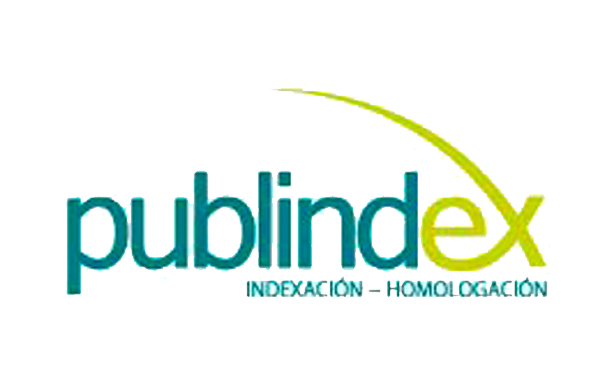Educational research applied to educational approaches and to pedagogical knowledge nuclei
DOI:
https://doi.org/10.18634/sophiaj.15v.1i.720Keywords:
urriculum, educational approaches, educational research and pedagogical knowledge nuclei.Abstract
The purpose of the article is to make a deliberate exposition about the consistency of educational approaches and pedagogical knowledge nuclei in the current educational problem, with the intention of establishing the nature of the ideological demands, the policies that education receives, and the characteristics of the pedagogical answers that an educational project offers to the structuring of a pedagogical model. The article has been methodologically supported in an educational research in which there are two major challenges that must be overcome in the exploration process: the classroom and its character to assume the production, distribution and circulation of contemporary knowledge; and the curricula and their extreme ideological approaches, which prevent an adequate understanding of the pedagogical process of the new teacher. It is concluded that educational facts, such as values, meanings, intentions and beliefs are not directly observable, nor susceptible to experimentation, since in the educational field, the behavior must be contextualized, which makes it difficult to generalize it as a detached part of the context.References
Acosta, C. (2003). Pensamiento Crítico. Conferencia Diplomado en Docencia Universitaria. Cartagena: Ed. CES IAFIC.
Arnal, J., Rincón, D y Latorre, A. (1994). Investigación educativa: fundamentos y metodologías. Barcelona: Editorial Labor.
Briones, G. (1996). La investigación en el aula y en la escuela. Santa Fe de Bogotá: Convenio Andrés Bello.
Buyse,R. (1973). La experimentación en pedagogía. Barcelona: Labor.
Comenio, J. (1998). Didáctica Magna. Buenos Aires: Editorial Porrúa.
Cerda, H. (2001). Investigación total. Bogotá: Editorial Magisterio.
Decroly, O. (1965). Iniciación General al Método Decroly. Buenos Aires: Ed. Lozada, S.A.
Dewey, J. (1967). Experiencia y Educación. Buenos Aires: Ed Lozada, S. A.
De la Salle, J. (1952). Guías de las Escuelas Cristianas. Bogotá: Ed Librería Stella.
Díaz, Ã. (1985). Didáctica y currículum. México: Nuevomar.
Errandonea, A. (2000).¿Metodología cualitativa versus metodología cuantitativa? Cuadernos de Clacso, 35
Freire, P. (1982). La educación como práctica de la libertad. México: Siglo XXI Editores.
Guba, E. (1982). Criterios de credibilidad en la investigación. España: Mc Graw Hill.
Herbart, J. (1976). Pedagogía general deducida del fin de la educación. Madrid: ediciones de la lectura.
Kuhn, T. (1971). La estructura de las revoluciones científicas. México: F.C.E.
Ministerio de Educación Nacional. (1994). Ley 115. Por la cual se expide la ley general de educación. Recuperado de: https://www.mineducacion.gov.co/1621/articles-85906_archivo_pdf.pdf.
Passos, E. (2012). Racionalidad histórica entre epistemología y pedagogía. Méthodos 10, 14-22.
Passos, E. (2014). Pedagogía de Amor: Un ensayo experimental desde la sociología de la educaciónâ€. Méthodos 12, 14-20.
Passos, E. (2015a). La investigación en los contextos emergentes del siglo XXI. Méthodos 13, 12-14.
Passos, E. (2015b). Metodología para la presentación de trabajos de investigación. Una manera práctica de aprender a investigar investigando. Cartagena de Indias: Alpha Editores.
Pestalozzi, J. (1936). El Método. Madrid: Ediciones Espasa Calpe.
Piaget, J. (1978). Psicología y pedagogía. Madrid: Planeta Agostini.
Popkewitz, T. (1988). Paradigma e ideología en investigación educativa. Las funciones sociales del intelectual. Madrid: Mondadori.
Posner, G. (1998). Análisis del currículo. Bogotá: Mc Graw Hill.
Quiceno, H. (1988). Pedagogía Católica y Escuela Activa en Colombia 1900-1935. Bogotá: Ed Foro Nacional por Colombia.
Suárez Ruiz, P. A (2002). Metodología de la investigación: Diseños y técnicas. Bogotá: Orión Editores.
Schanzer, R. (2000). Paradigmas de los enfoques cuantitativo y cualitativo en investigación social: la combinación de información cualitativa y cuantitativa. Canadá: Papeles de investigación Nº 3.
Sirvent, M. (1999). La práctica de la investigación: Taller de metodología de la investigación educativa. Buenos Aires: Miño y Dávila editores.
Downloads
Published
Issue
Section
License
Creative Commosn Licence 4.0








